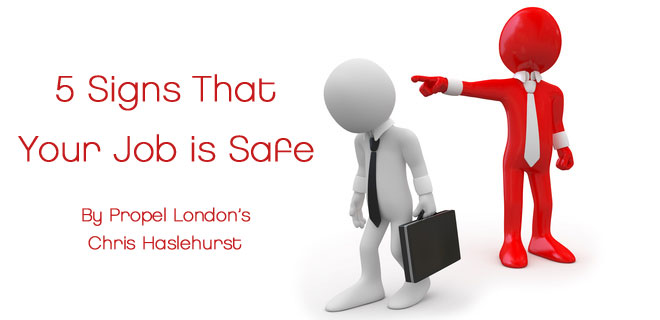
Even in a time where our industry continues to show strong signs of growth job security remains an issue within the new media community. Being in the midst of an industry such as ours means it is common place to work alongside and even help to introduce new and more efficient processes within the business so it’s easy to wonder whether or not your role will or has become redundant.
We at AdMonsters strongly promote career development within the Ad Operations community and have made that a fundamental part of our events.
Propel London’s Phil Haslehurst has taken a more hands on approach to job security – read his 5 step guide to ensuring your continued employment and career growth in 2012.
During times of extended economic doubt it’s forgivable, if not inevitable, that we all become a little bit pessimistic about the security of our jobs. There is, after all, a lot of doom and gloom on the airwaves – and a lot at stake for each of us should we fall foul of the recessions vicious temper.
There’s little fun to be had constantly worrying about job security. Jangling nerves and sweaty palms do not make for an enjoyable day at the office – not to mention the negative effect they’ll have on your output. With that in mind, here are 5 signs that, in fact, you should spend less time worrying and more time getting on with business:
You’re inundated with requests and questions
How much time do you spend helping other people in your company to fix their problems? How often are you the first person that your colleagues turn to when they’re struggling with a problem? If you’re busy working on projects that help others – especially senior members of the team – then you’re considered a safe pair of hands.
Your boss relies on you
Every great hero needs a sidekick – the Robin to their Batman; Watson to their Sherlock; the yin to their yang. It’s crucial to be different to your boss – to deliver skills and qualities that compliment, rather than replicate their own. If you can confidently say that you fill a hole in your manager’s repetoire then you should also feel confident that you’re regarded as an important member of the team.
You deliver something unique and important
Who else in the company does what you do? And how important is what you to do the company’s overall success? When times are tough, business leaders will look to their core functions to see them through. Jobs that contribute revenue, or critical support to that process, will be protected fiercely. Unique, business-critical skill sets are highly-prized – so if you possess them, be happy; if you don’t then think about how to change that.
You’re a lynchpin
Does your work support the function of multiple teams, or enable them to operate at all? If so, you’re a lynchpin. If multiple stakeholders in the business rely on you and your output then multiple stakeholders in the business will defend your worth should difficult conversations take place.
You’ve been told that you’re safe
Getting feedback on how well you’re doing at your job is a great habit to get into – and it’s an essential habit when the economy isn’t so hot. After all, if you want to safeguard your position then you need to know how your performance is perceived by the people in charge and make changes accordingly. Don’t be afraid to ask for a review, or just an informal catch-up. Get feedback on how well you’re living up to your job role, and the opportunities available to do more.